IRISE Consortium
Impactful Resilient Infrastructure Science and Engineering
Annual Report 2022




IRISE Consortium
Impactful Resilient Infrastructure Science and Engineering
Annual Report 2022



It takes a community to manage a Transportation system.
The IRISE Consortium represents many extremely important aspects of the Transportation Community: Public Sector Owners and Operators including The Pennsylvania Department of Transportation, The Pennsylvania Turnpike, The County of Allegheny and the Federal Highway Administration as an ex officio member, Contractor Golden Triangle Construction and the Constructors Association of Western Pennsylvania, Consultants Michael Baker International and CDR Maguire, and academia. The power and knowledge of consortium members, when collaborating together to improve key components and aspects of asset management challenges, is what makes IRISE a unique and powerful group.
I was honored when asked to assume the Director position last May. Dr. Julie Vandenbossche was the original Director since
it’s onset in 2018. Julie wanted to spend more time with students and be more personally involved with research. As such, she assumed the role of IRISE Director of Research. There is power in numbers, and our members combine to provide contributions that go far beyond funding. First and foremost, they help identify highway infrastructure performance challenges related to design, durability, and maintenance of pavement and structures, as well as challenges associated with geotechnical features and stormwater systems, and safety issues that affect construction workers.
IRISE is also looking to the future. Our members have encouraged us to invest a portion of their membership contributions in higher risk/payoff projects. Later in this report, you can read about our September 2022 Strategic Planning session and the Pennsylvania Turnpike Mon Fayette Test Bed Initiative.
IRISE is now a key contributor to the University’s Annual Transportation Forum, held in partnership with the Pittsburgh Chapters of the Women in Transportation, and the American Society of Highway Engineers. It serves as a valuable way to share results of research.
This fifth annual report provides information on the evolution and progress of the IRISE Consortium. We are pleased with the variety of projects that we’ve undertaken and are summarized in this report. Work has begun on our fifth-year slate of research projects, and we are very excited to develop and initiate work on our sixth year program this fall.
The Department of Civil and Environmental Engineering has a proud history and tradition in education and research at Pitt. We very much appreciate everything our Consortium members provide and invite your continuing participation as IRISE continues to evolve.
Joe Szczur, PE Director, IRISE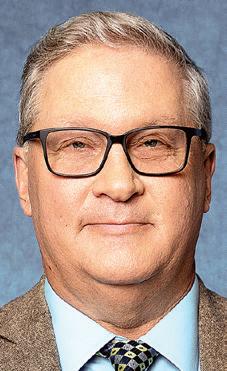
The Impactful Resilient Infrastructure Science and Engineering (IRISE) Consortium was established in the Civil and Environmental Engineering Department in the University of Pittsburgh’s Swanson School of Engineering in the Fall of 2018 to develop innovative solutions that address the durability and resiliency challenges associated with aging highway infrastructure.
Innovative solutions to highway infrastructure problems are best achieved through collaboration between the public agencies that own and operate the infrastructure, the private companies that design and build it and the researchers.
Highway infrastructure research must provide implementable solutions that meet the needs of these agencies and companies.
Since 2018, IRISE has produced research products addressing:
Bridge corrosion and condition assessment
Concrete pavement design and construction
New materials development and performance
Research product benefits analysis
Highway construction worker safety Landslide risks, best practices and data analysis
Through their participation throughout the whole research cycle, members are acquiring knowledge and innovative tools to solve problems and improve their services.
The University of Pittsburgh is joined by three public agencies, three private companies and one association that comprise the IRISE consortium partnership. The Federal Highway Administration also serves as an ex-officio member. Each organization is represented on the IRISE Steering Committee. The individuals shown contribute towards defining each year’s research program and appoint representatives from their organizations to individual project panels to help define each project’s detailed scope, to keep the research relevant as it proceeds, and to build interest in implementing the resulting innovations.


“At CDR Maguire Engineering, we continue to build on our rich and proud history of over 80 years –enabling us to provide our clients with the newest approaches, innovations, and technologies in design and construction. Our support and active participation in IRISE helps us accomplish this, while also contributing to the education of our future workforce.”

 – Dan Cessna
– Dan Cessna
“Golden Triangle Construction strives to provide the highest level of quality construction services at fair and market competitive prices to our customers. Our ability to identify industry needs and have them addressed through IRISE benefits not only our business but our customers and the traveling public.”
 – Chuck Niederriter
– Chuck Niederriter

IRISE members wish to acknowledge the contributions of Willy McKain who left government service after 10-years as Allegheny County Manager. Under Willy’s tenure, Allegheny County became the very first IRISE member. Willy’s continuing support and focus on the benefits of IRISE research investment are much appreciated.

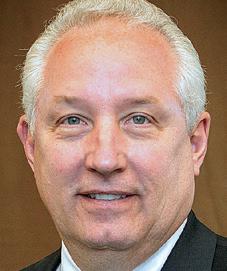

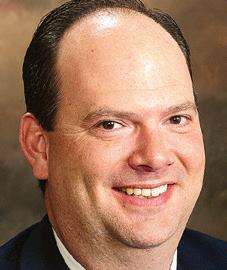
We also want to extend a special thanks to Mr. Gary Euler. Gary will be stepping down from his role as Associate Director at the end of June 2023 to enjoy his retirement. He began his role with IRISE in 2018 and his contributions have been vital to its success. As IRISE grew from a vision to where it is today, it was essential to have someone the members could rely on to ensure everyday operations would be performed at the highest level. This along with Gary’s good nature and great sense of humor made him a pleasure to work with. Many thanks to Gary for all of his contributions in helping IRISE develop and grow over the past five years!





• Sensors
• Crowd sourcing
• Forecasting
Intervention
• Worker safety
• Repair technology
• Maintenance practices
• Digital twin
• Automated assessments
MISSION
Engineering Resilient, Sustainable Infrastructure Solutions
• Cost effective
• Limited disruptions
• Design and construction efficiency
• Safety
• Public Policy
• Timing of intervention
• Selection of intervention
• Minimize life cycle cost
• Multi-functional (ie., energy harvesting)
• Integrated
• Durable
• Efficient
• Resilient
• Sustainable
The following sections contain capsule descriptions of the individual projects that IRISE completed in 2022, are ongoing or will be initiated in 2023. The graphic is a depiction of the framework that illustrates the IRISE research mission.
More information on each of these projects can be found on the IRISE website: https://www.engineering.pitt.edu/subsites/consortiums/irise/research/completed
Construction
This project scanned and evaluated several promising remote-controlled technologies that could be used to improve safety in highway and street work zones. Three technologies were evaluated in more depth for safety features and also on productivity, data processing, and, especially, requirements for implementation.
• Remote-Controlled Ground Penetrating Radar (GPR) for Asphalt Density
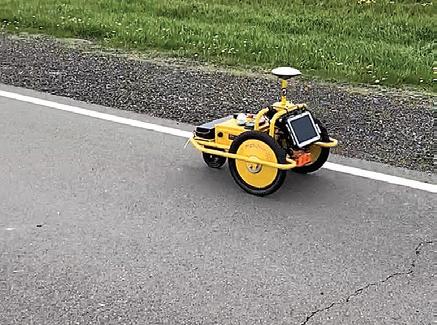
• Automated Real-Time Thermal Profiling for Asphalt Paving
• Autonomous Impact Protection Vehicle Workshops with vendors and leading experts were conducted for each technology. Recommendations for implementation of the technologies were provided.
Principal Investigator: Dr. Lev Khazanovih
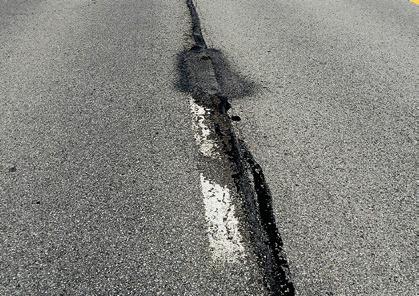
This project investigated whether pavement markings cause pavement surface deterioration. Visual surveys of selected sections were performed to identify whether the surface distresses were located directly below or in the vicinity of the markings, relating the damaged area to the overall surface condition. Nondestructive testing was performed to evaluate the marking/ pavement condition. Finite element modeling was conducted to evaluate the potential effect of temperature differentials on the interaction between markings and pavement surfaces. Results strongly indicate the issues with longitudinal joint compaction are the main culprit for pavement deterioration around longitudinal pavement markings. Recommendations regarding longitudinal joint construction and evaluation as well as pavement marking installation were proposed to avoid early pavement marking deterioration.
Principal Investigator: Dr. Lev Khazanovih
Cost savings associated with improving the performance of highway infrastructure through innovations resulting from five IRISE research projects were quantified. Each of the selected projects was examined in detail to determine the types of unique benefits that may be expected and then quantified based upon direct and indirect impacts or the life cycle of the infrastructure feature. Current and newly devolved analysis methodologies were evaluated and applied. Based upon the individual project analyses, the potential capital or life cycle cost savings were determined to be significant in all cases.
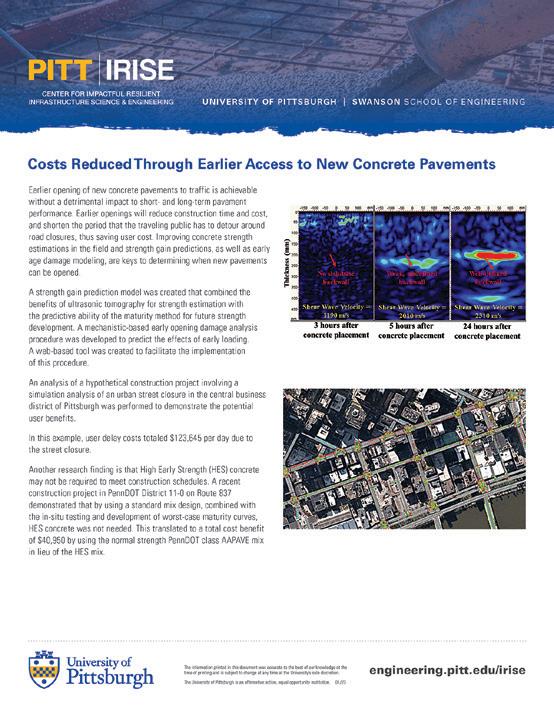

Principal Investigator: Dr.
Mark MagalottiMore information on each of these projects can be found on the IRISE website: https://www.engineering.pitt.edu/subsites/consortiums/irise/research/active-projects
This project is exploring the feasibility of integrating additive manufacturing with Accelerated Bridge Construction (ABC) techniques. Concrete beams are being 3D printed and tested to identify efficient reinforcement strategies and concrete mixtures. A range of small-scale prefabricated bridge elements commonly used in ABC practice will then be 3D printed.

Principal Investigator: Dr. Amir Alavi
This project is exploring the complex interrelationships between the temporal and spatial frequency of salt application and corrosion mitigation strategies. Numerical models and optimization are being employed in order to develop new best practices for bridge deck corrosion mitigation and guide both the design of new systems and the operational maintenance of existing ones.
Principal Investigator: Dr. John Brigham
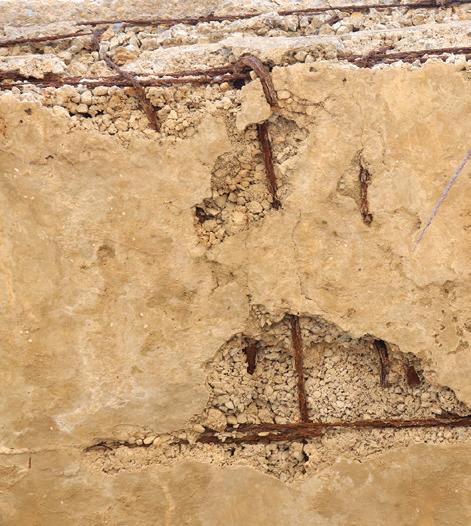
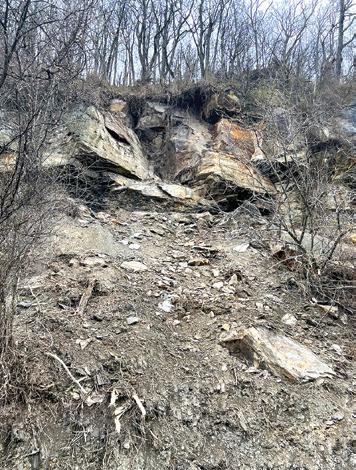
This project is developing a unified inventory of landslide data incorporating extensive geophysical information providing interested parties with access to a comprehensive and consistent database. Reflecting cumulative experience from across the region, data from the inventory could be used to guide mitigation efforts, help identify the most important causes for slope failure and/or locations that are most likely to fail and advance an effective proactive approach to landslide monitoring and mitigation.
Principal Investigator: Dr. Daniel Bain
The project is producing a Southwestern Pennsylvania regionspecific best practices document for practicing geotechnical engineers and geologists engaged in mitigating adverse impacts from active landslides or reducing the risk of landslide movements. The first part of the manual focuses on landslide characteristics (slope movement and failure prone mechanisms), landslide investigation, instrumentation and monitoring and slope maintenance, while the latter portion focuses on stabilization methods (design, economical and construction aspects) and slope management practices.

Principal Investigator: Dr. Daniel Bain

Seminar Series on
A series of seminars is being conducted to share knowledge about stormwater control technologies, particularly green infrastructure approaches, effective cross-jurisdictional strategies, and scenarios of climate and regulatory strategy. The seminars will focus on multiple sub-topics identified by the project technical panel with presentations from invited experts on those topics.
Principal Investigator: Dr. Daniel Bain
An earlier IRISE project established the importance of using repair material compatible with in-situ concrete for partial depth repairs. This project is assessing the field performance of actual partial depth repairs made using the recommendations from that project in comparison with partial depth repairs made using standard PennDOT mixtures in similar settings. The ability of ultrasonic tomography testing to provide reliable information for required partial depth repair dimensions and to evaluate bond condition after repair placement is also being investigated.
Principal Investigator:
Dr. Stephen Sachs
Developing Light-Weight and HighPerformance Metamaterial Concrete
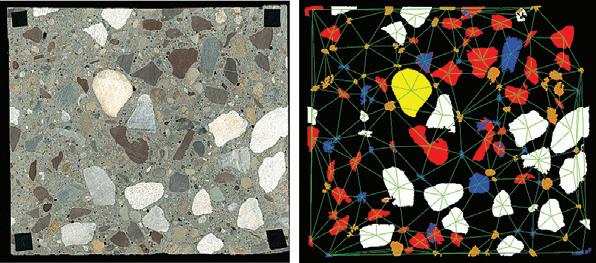
Under this project, metamaterialbased designs for concrete beams and slabs are being investigated. Metamaterial lightweight and highperformance concrete structures with tunable compressive strength and ductility are being fabricated. A series of recommendations for designing metamaterial concrete structures is being developed. The costs and benefits of the relevant technologies are being assessed.
Principal Investigator: Dr. Amir Alavi


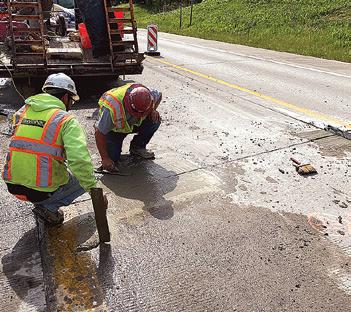
Joint performance is dependent on the interaction between the individual elements of the pavement structure, such as load transfer, drainage and joint reservoir/sealant design. Yet traditionally, most of these individual elements are designed without regard to their interactions. The type, reservoir design, construction practices and performance of joint sealants in Pennsylvania are being explored and guidance on strategies for optimizing joint performance developed.
Principal Investigator:
Dr. Julie Vandenbossche
Three-dimensional MicroMechanical Characterization of the Effect of Vibration and Compaction in Concrete Pavements
This project is investigating the effects of vibration and compaction operations in slipform paving under variable environmental conditions. It is identifying the effects of different vibration and compaction strategies as a function of the mixture design and the ambient temperature and humidity, and developing guidelines that will define the optimal levels of vibration and compaction to be employed as a function of the on-site conditions.
Principal Investigator: Dr. Alessandro Fascetti
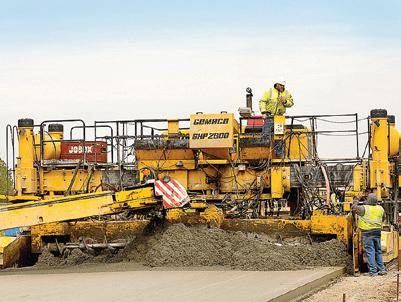
This project is developing design and construction recommendations for two-lift concrete pavements for Pennsylvania conditions, considering the top layer’s high-performance needs and the bottom layer’s economical and sustainable aspects. An experimental section is being evaluated, focusing on the challenges of working with two pavers and two concrete mixtures. A comprehensive evaluation of the bonding conditions between the two layers is being performed and documented using non-destructive methods. The potential cost savings and reduction in carbon footprint are being evaluated.
Principal Investigator:
Dr. Lev Khazanovich
Prediction of Dowel Corrosion and Effect on Performance of Concrete Pavements
This research will quantify the corrosion development of dowel bars and correlate corrosion to loss of joint performance. Corrosion development will be investigated through an accelerated

load test to quantify resulting loss of dowel performance. The outcome will be a predictive model that accounts for key parameters including dowel type and exposure to deicing materials, and a set of guidelines to inform pavement design and management practices.
Principal Investigator:
Dr. Julie Vandenbossche
Seal Coat for Asphalt Pavements: Best Practices and Experience
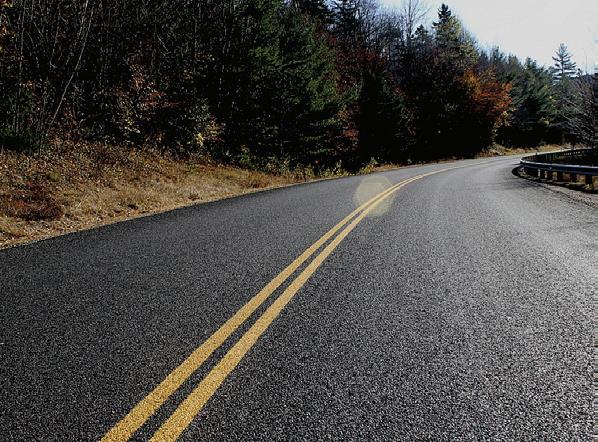
This project will develop material selection, construction, and inspection guidelines for the successful and uniform use of seal coats in Pennsylvania. Positive and negative experiences with seal coats from various departments of transportation and experienced contractors will be gathered as well as current practices from local contractors conducting visual surveys and forensic analyses. Emphasis will be placed on the “do’s and don’ts” regarding seal coat design, construction and inspection.
Principal Investigator:
Dr. Eshan Dave University of New Hampshire
Identifying Major Causes of Highway Construction Accidents
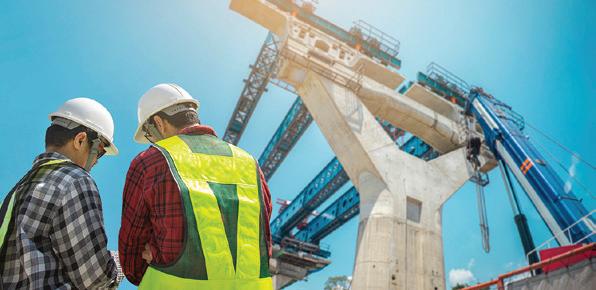
Using historical data related to road construction accidents in Pennsylvania, this project is identifying and ranking dangerous scenarios, taking into consideration near-misses, in highway and street construction. The project is developing recommendations for avoiding or minimizing dangerous scenarios in the future and providing qualitative information for the improvement of safety training and development of safety-related equipment.
Principal Investigator: Dr. Lev Khazanovich
Investigating New Underground Utility Location Technologies and Novel Methods to Improve the Safety and Efficiency of Highway Construction

Current and emerging technologies that could more accurately determine lateral position and depth of known and unknown utilities are being investigated. Current DOT methods and technologies used across the US as well as new and emerging technologies are being evaluated. Field test sites with verified location of underground utilities where detection might be a challenging
problem are being identified and the ability of these new methods to identify utility location is being assessed. Recommendations for the selection of equipment and test protocols are being developed.
Principal Investigator: Dr. Lev Khazanovich
Novel Immersive VR Platform for H&S Training of Construction Workers
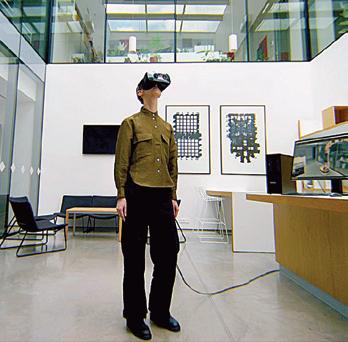
This project is developing an interactive training platform using Virtual Reality (VR) to train construction workers, inspectors and other project site staff about the dangers caused by run overs, back overs, caught-in or -between, and struck-by accidents in the highway construction industry. The VR platform will immerse users into a detailed digital reproduction of a given construction site while directing their attention to identify hazards that will be randomly placed inside the simulation. The possibility of employing formal attention analysis metrics by means of new generation VR gear equipped with eye tracking technology is also being investigated.
Principal Investigator: Dr. Alessandro Fascetti
The IRISE annual work program planning process commences in the fall with a brainstorming session, held on October 27, 2022. Research ideas were presented and discussed with member representatives. IRISE staff subsequently identified the ideas that generated the most interest. Short problem statements for these topics were prepared and discussed with the IRISE Steering Committee. The Steering Committee approved development of detailed scopes of work for a subset of these problem statements. These draft detailed scopes of work were distributed to and discussed with member technical representatives.
The project ideas below emerged from that process. If the final scopes of work are approved by the IRISE Steering Committee, work on the projects will begin in late 2022 or the beginning of 2023.
The project goal is to create an artificial intelligence language model that can provide fast and accurate answers to common pavement engineering and pavement construction questions. Examples of those pavement related topics include design, mixture design, specifications, best construction practices, maintenance and rehabilitation, management, testing and evaluation.
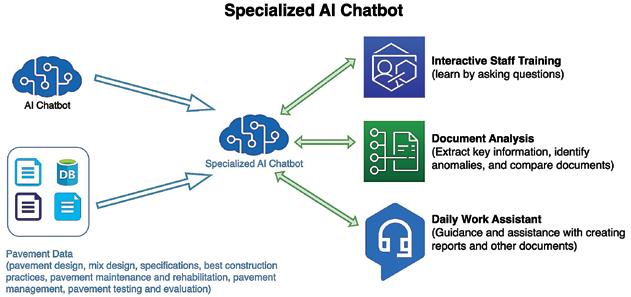
Proposed Principal Investigator: Dr. Lev Khazanovich

Finite element modeling analyses of three bridges will be conducted to determine whether a semi-automated process that accounts for only damages visible from digital images could be of sufficient accuracy to determine whether overly conservative weight limit postings are causing unnecessary inconvenience and user cost.
Proposed Principal Investigator: Dr. Piero Rizzo
This project would examine the feasibility of using surfacemounted heating elements for pavement deicing. The technology would be implementable on both existing and new pavements with the goal of automating snow and ice removal operations and eliminating the need for deicing chemicals.
Proposed Principal Investigator: Dr. Amir Alavi
During the past year, the Pennsylvania Turnpike Commission approved an investment in IRISE to conduct research exploring innovations that could be applied as design and construction of the Mon-Fayette Expressway Extension proceeds. Work will begin in 2023 in four areas:
• Absorptive sound walls that would serve to both reduce noise and improve air quality while providing a savings in materials costs.
• Harvesting energy from roadway traffic mechanical excitations of a geogrid for empowering roadside electronic devices.

• Developing a digital twin of a selected portion of the expressway to enable a holistic approach to resilience assessment, predictions and risk-based maintenance of assets such as bridges, pavements, and stormwater management facilities.
• Developing a strategic plan to guide Turnpike investment decisions and policies in the coming years as electric vehicle and dynamic wireless charging technologies advance.
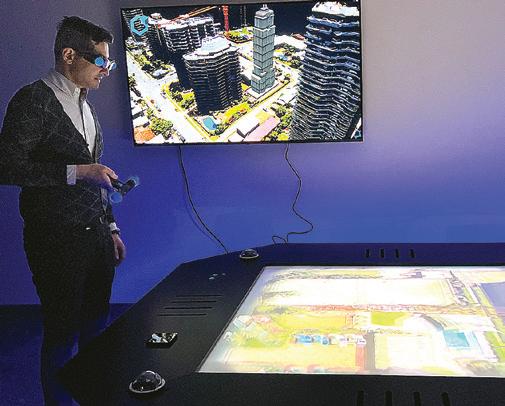
Students benefit from IRISE activities in several ways. The students below were financially supported and directly involved in IRISE projects, in total 8 undergraduate students, 19 graduate students and 2 postdocs. Project involvement led to students co-authoring papers and making presentations at conferences of organizations such as the American Concrete Pavement Association and the Transportation Research Board.

• Eugene Kwon
• Kit Leng Ing
• Edmund Jermyn
• Bailey McCausland
• Elizabeth Pease
• Kara Schmitt
• Ashley Solenday
• Robert Wildish
• Abiodun Ayo-Bali
• Kaveh Barri
• Zachary Brody
• Megan Darnell
• Charles Donnelly
• Bashear El-Hajj
• Katheryn Kennebeck
• Katelyn Kosar
• Haoran Li
• Wenyun Lu
• Jianzhe Luo
• Ping Lyu
• Emrah Ozpolat
• Tyler Rohan
• Mason Smetana
• Zhe Sun
• Zhe Wan
• Xiangdong Yan
• Gloria Zhang
Postdocs
Lucio Salles de Salles, PhD played important roles on several IRISE projects: Distresses Due to Pavement Markings, Major Causes of Highway Construction Accidents, Technology Assessment for Safer Construction and Utility Location Technologies. His research interests include full-scale and non-destructive pavement testing, finite element modeling and simulation, road markings, and pavement design and performance.
Sushobhan Sen, PhD contributed to the Distress Due to Pavement Markings project. His research interests are in pavement sustainability, climate change adaptation and computational modeling.

Students also benefited from participating in IRISE events such as the Annual Meeting and Brainstorming session. IRISE members provide co-op and internship opportunities and exposure to engineering projects in the region. For example: Undergraduate student Gabriel Salgado, the recipient of an IRISE scholarship, completed an internship with Allegheny County and will be doing a second internship in the summer of 2023.
The County made a presentation at an undergraduate seminar on its Three Sisters Bridges rehabilitation work.
Students throughout the CEE and Geology Departments also benefited from having information from IRISE projects included in their courses to help bridge the gap between research and practical application when they enter the workforce.
IRISE would also like to recognize the contributions of two others during the past year:
Fatma Ciloglu, PhD served as the Principal Investigator for the Landslide Best Practices project. Dr. Ciloglu is an Associate Vice President and the Geotechnical Department Manager for IRISE member Michael Baker International.

Charles Nash provided valuable contributions to the Methodologies to Quantify Benefits of IRISE Research project as a volunteer. Mr. Nash is a Practice Leader with MS Consultants with extensive experience and knowledge in highway design and construction.









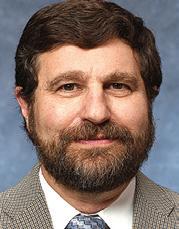

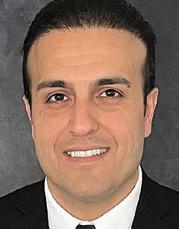






4. Daniel Bain, PhD served as the PI for the Landslide Inventory and Analytical Tool project and the seminar series on Comprehensive Stormwater Management. Dr. Bain is in the University’s Department of Geology and Environmental Science. His research focuses on human driven changes in environmental systems.
5. Melissa Bilec, PhD is the co-director of the University’s Mascaro Center for Sustainable Innovation. Dr. Bilec led the discussion on sustainability research needs during IRISE’s 2022 Brainstorming session. Her research focuses on exploring how the built environment can be an integral part of climate change solutions.
6. John Brigham, PhD served as the PI for the Structural Optimization of Bridge Decks Against Corrosion project. He provides expertise in computational diagnostics and inverse mechanics related to the testing of materials.
7. Eshan Dave, PhD will serve as the PI for the Asphalt Pavement Seal Coating Best Practices project. Dr. Dave is affiliated with the University of New Hampshire. His research interests include performance evaluation of pavements and materials, performance based specifications, resilient design, climate variability impacts and life cycle assessment.
8. Alessandro Fascetti, PhD is the PI for the Effect of Vibration and Compaction in Concrete Pavements project and the Virtual Reality Health & Safety Training of Construction Workers project. He will serve as the PI for the proposed Self-Heating Pavements project. His research interests revolve around the physical processes that contribute to the degradation of civil infrastructure systems.
9. Kent Harries, PhD, P.Eng. contributed ideas on bridge research needs during the 2022 Brainstorming session. His research interests include the use of nonconventional materials in civil infrastructure.
10. Anthony Iannacchione, PhD, PE, PG is a Senior Advisor participating in the Landslide Inventory and Analytical Tool project. His expertise is in the design of underground facilities with minimal risk of environmental or workplace harm.
11. Lev Khazanovich, PhD served as the PI for the completed Pavement Surface Distresses and Technology Assessment for Safer Construction projects. He also served as the PI for the Utility Location Technologies and the Major Causes of Construction Accidents projects. He will serve as the PI for the proposed Pavements Artificial Language Model project. His research has featured performance prediction modeling, non-destructive testing and finite element modeling.
12. Mark Magalotti, PhD, PE served as a Senior Advisor to IRISE leadership and as the PI for the completed Benefits Analysis project. His research interest is multi-modal transportation planning and technology transfer of research products.
13. Piervincenzo Rizzo, PhD led the discussion on bridge research needs during IRISE’s 2022 Brainstorming session. He will serve as the PI for the proposed Bridge Load Ratings project. His research interests are structural health monitoring, nondestructive evaluation and smart structures.
14. Steve Sachs, PhD is the PI for the Materials Compatible Repairs Evaluation project. His research interests include pavement design and analysis, finite element modeling, and experimental characterization of structures and materials.
15. Eitan Shelef, PhD is participating in the Landslide Inventory and Analytical Tool project. He is in the University’s Department of Geology and Environmental Science. His research interests include linking climate change with hill slope processes and modeling landscape evolution by various types of erosive processes.
16. Meng Wang, PhD participated in the 2022 Brainstorming session offering a research idea related to using concrete to sequester CO2. His research interests are in resource recovery and understanding the effects of contaminants in natural and engineered systems.
IRISE conducted a Strategic Planning session in the summer of 2022. Representatives of member organizations gathered for an afternoon of discussion on the future direction of the consortium. Some of the key takeaways from that session were:
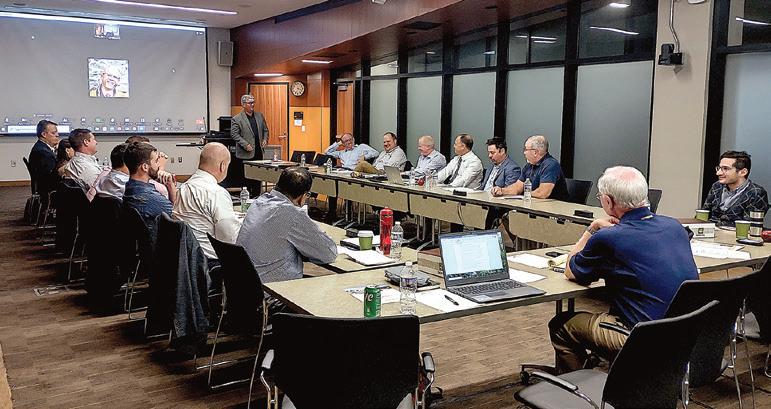
• Continue to emphasize producing implementable results.
• Engage in helping implementing agencies overcome a reluctance to use new ideas/methods resulting from research because of risk. This must be steeped in an understanding of who the implementers are when deciding on how to promote/sell research products. Pilot projects were encouraged, as well as incorporating innovations into design/build best value proposals.
• Target 30% of IRISE research investment in higher risk/reward projects.
• Consider other priority research areas such as carbon capture, data analysis and sustainability as funding level enables.
• Foster strategic membership growth in areas that complement the strengths of current members.
The University will continue to work with its fellow IRISE consortium members to address their highway infrastructure research needs. Building on the successful framework established during its first five years, IRISE will seek to grow strategically to meet the emerging needs identified during the Strategic Planning session.
